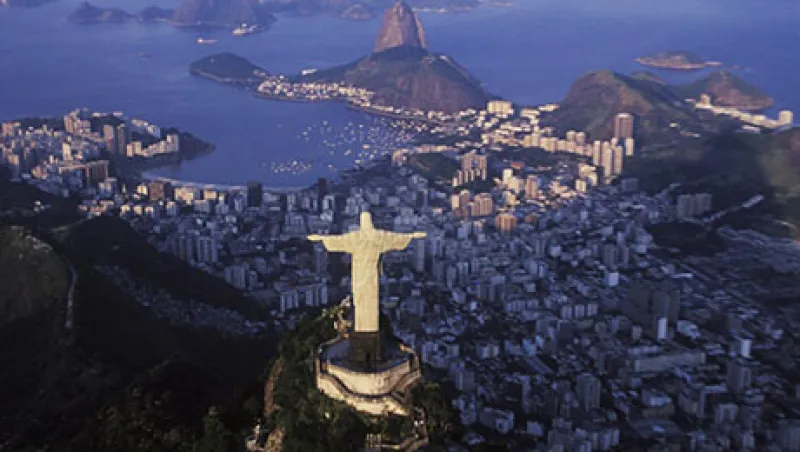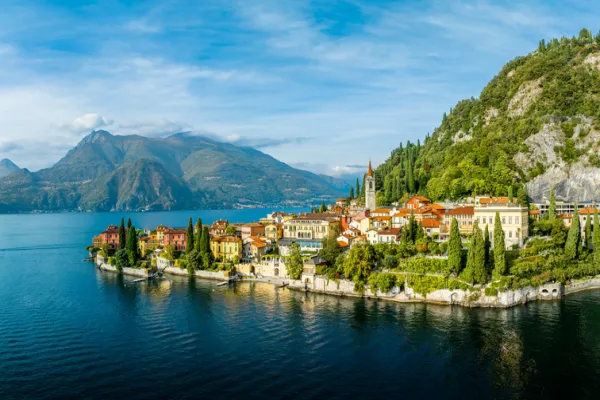Scandal, recession and weak oil prices have caused economic vitality to seep out of Brazil. Now the money is following.
Wealthy Brazilians are sending more of their assets overseas because of concerns about economic and political stability at home and fears that the real, which has dropped by 27 percent against the dollar over the past year, will continue to shed value, bankers and asset managers say. This trend is a throwback to the years before the economic boom of the 2000s, when hyperinflation and weak growth in Brazil prompted many of the country’s investors to seek safe havens for their wealth abroad.
“In the ’80s and ’90s, wealthy Brazilians had 20 to 30 percent of their wealth invested in dollars,” says Rogério Pessoa, co-head of wealth management at BTG Pactual in Rio de Janeiro. “I think we are seeing a return to those kinds of levels now. It’s a process of normalization.”
Brazil’s economy, which expanded at an average annual rate of 4.3 percent from 2004 to 2011, has come to a virtual standstill. Growth turned negative in the first quarter of this year and is widely expected to contract by 1 percent or more in 2015. The country has been hurt by plunging prices of oil and agricultural commodities, while a major corruption scandal at Petróleo Brasileiro, which allegedly funneled millions in kickbacks to contractors and politicians, has damaged business confidence and rocked President Dilma Rousseff’s government. Rousseff, narrowly re-elected to a second four-year term in October, saw her approval rating plummet to just 13 percent in March. She served as chair of Petrobras from 2003 to 2010.
In February Moody’s downgraded Petrobras to junk-bond status, and many investors feel the sovereign could lose its investment-grade status. After years of heavy spending led the government to run a primary budget deficit (that’s before interest payments) of 32.5 billion reais ($10.4 billion) last year, recently appointed Finance minister Joachim Levy has been pushing austerity measures, including 69.9 billion reais in spending cuts, that will hit the economy in the short run. The bad news has punished the real, dropping the currency to 3.13 to the dollar on June 5, from 2.28 a year earlier.
All of this bad news is sparking a bout of capital flight, according to asset and wealth management executives. According to Otávio Vieira, a partner at Rio de Janeiro–based Fides Asset Management, wealthy Brazilians today tend to hold 20 to 40 percent of their assets overseas, roughly double the percentage of five years ago.
“It’s a yin-yang effect,” says Paul Arango, Miami-based managing director of Latin American private banking at Credit Suisse Securities, an arm of the Swiss bank that manages $15 billion in assets. “In some years our onshore business does well in Brazil; in other years our offshore business does better,” he says. The latter is definitely the case today. “With increased instability in Brazil and high-net-worth investors moving their wealth offshore, our U.S. business is seeing the effect through further growth,” he says.
A similar trend is seen by Elliot Dornbusch, chief executive of CV Advisors, a Miami-based multifamily office that advises 55 families across Latin America with $4.4 billion in assets. “Wealthy families in most Latin American countries have invested large sums overseas for a long time, but the culture in Brazil has been to reinvest at home,” he says. “This is the first time in decades that we have seen high-net-worth Brazilians move a significant chunk of their money offshore.”
The increase in offshore investment is being felt in Brazil’s domestic wealth management market. From 2010 to 2012, assets under management of local private banks expanded by an average of 22 percent a year, to reach 527 billion reais at the end of 2012, but during the past two years the annual growth rate has slowed to 10.5 percent, bringing assets to 645 billion reais at the end of 2014, according to the Brazilian Financial and Capital Markets Association, known by its Portuguese acronym, ANBIMA.
Much of the domestic action is in fixed-income markets these days. In a bid to contain a rising inflation rate, Banco Central do Brasil has hiked its benchmark Selic rate nine times and by 3.75 percentage points in total since the start of 2014, with the latest 50-basis-point hike in early June, leaving the rate at 13.75 percent. Analysts say high rates have attracted investors to local products such as tax-exempt bonds, agribusiness credit bills (Letra de Crédito do Agronegócio, or LCA) and real estate credit bills (Letra de Crédito Imobiliário, or LCI) offered by commercial banks.
“Investors, even sophisticated ones, have gone back to basics and are investing in these types of products,” says Flavio Souza, head of wealth management services at Itaú Unibanco, Brazil’s biggest commercial bank. “However, despite the high interest rates, they still want to invest overseas because of the challenging local scenario, and to protect against currency devaluation.”
Souza points out that Brazilian corporate profits have slumped and the stock market has been weak; the São Paulo Stock Exchange’s IBOVESPA index has been rangebound for the past two years and stands some 27 percent below its late-2010 highs. Initial public offerings and acquisitions have also dried up. Last year there was only one IPO, a 418 million real offering by veterinary products maker Ourofino in October. That was a far cry from the bumper year of 2007, when 66 IPOs raised $32.3 billion.
“The wealth market normally expands rapidly when there is a fast-growing economy or when there are important liquidity events,” says Pessoa of BTG Pactual, which has about 70 billion reais under management. “We are not seeing any of that at the moment. However, we are witnessing a very healthy M&A pipeline. The currency devaluation has made Brazilian firms attractive purchases for foreign investors.”
The trend of increased offshore investment stands to get a boost from recent regulatory changes, meanwhile. In December Comissão de Valores Mobiliários, the country’s equivalent of the Securities and Exchange Commission, adopted new rules that will enable mass-affluent investors to put greater sums offshore. The rules, which take effect in July, remove an onerous restriction requiring so-called qualified investors to make a high minimum investment of 1 million reais in a single fund, a big hurdle for most of the mass affluent in Brazil. Under the revised rules, fund managers are free to decide the minimum investment in offshore funds. A separate rule change has doubled the upper limit that qualified fund investors can place overseas, to 40 percent of assets.
“This is a huge development for the industry, as it means 200,000 to 300,000 clients will meet the new criteria,” says Thomas Ciampi, chief executive at Latin Asset Management, a New Jersey–based research and consulting company. “Many global managers want to plant roots in Brazil and set up feeder funds through local managers to take advantage of the rule changes.”
However, Pessoa is not convinced that demand for these feeder funds will be so great when Brazilians can invest in high-interest-rate products at home. “The rule changes are important, but interest rates and the economic course matter more,” he says.
Meanwhile, the weakness in the domestic wealth management market has precipitated something of a shake-up in the industry. In March 2014 Julius Baer, the Swiss private bank, acquired a 50 percent stake in GPS Investimentos Financeiros e Participações , Brazil’s largest independent wealth manager with more than 15 billion reais under management, for an estimated $107 million. The purchase lifted the Swiss bank’s stake in GPS to 80 percent.
In January Italy’s Azimut Holding announced it would purchase a 50 percent stake in LFI Investimentos, a Brazilian multifamily office with 500 million reais under management, for 8.5 million reais.
Get more on emerging markets.






